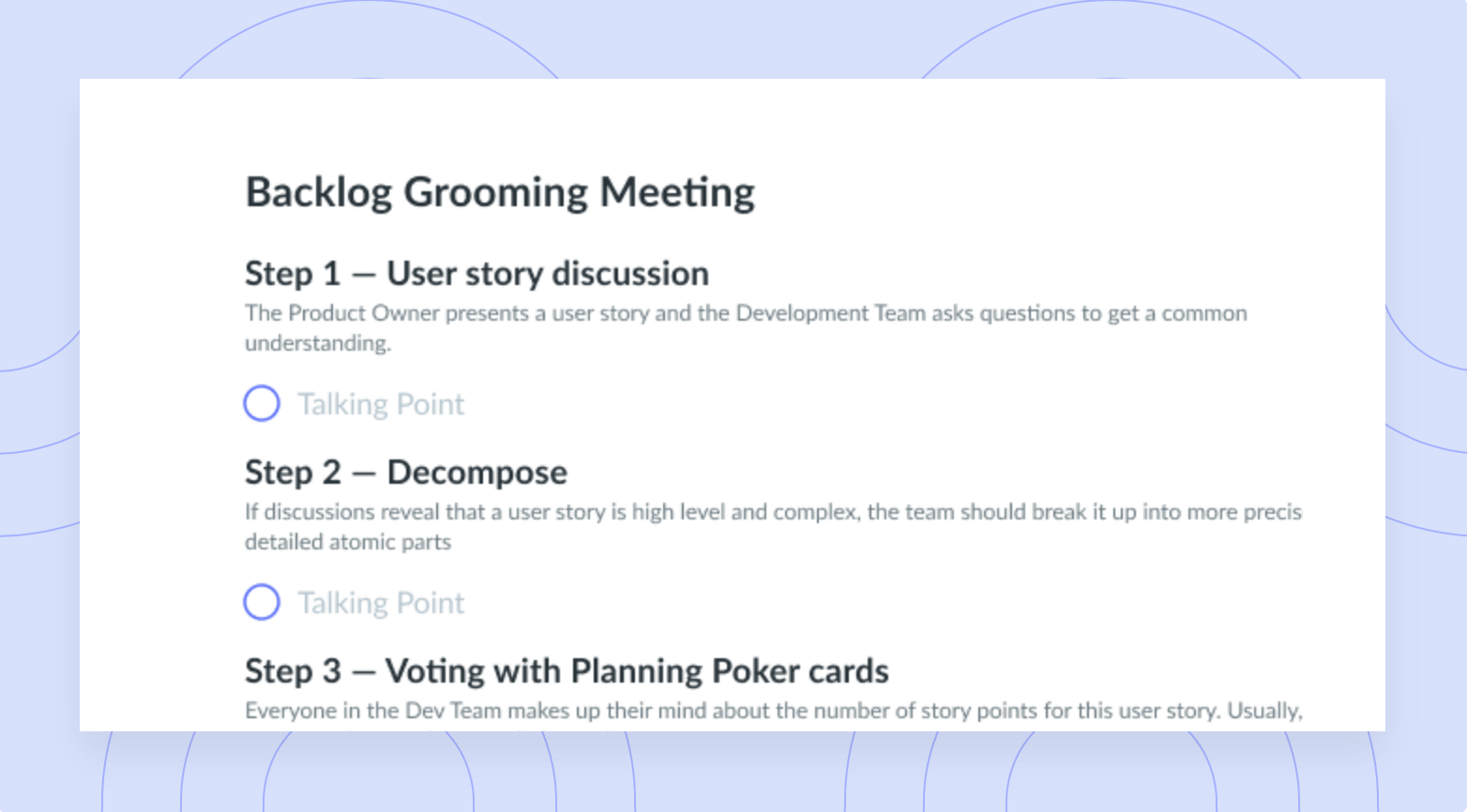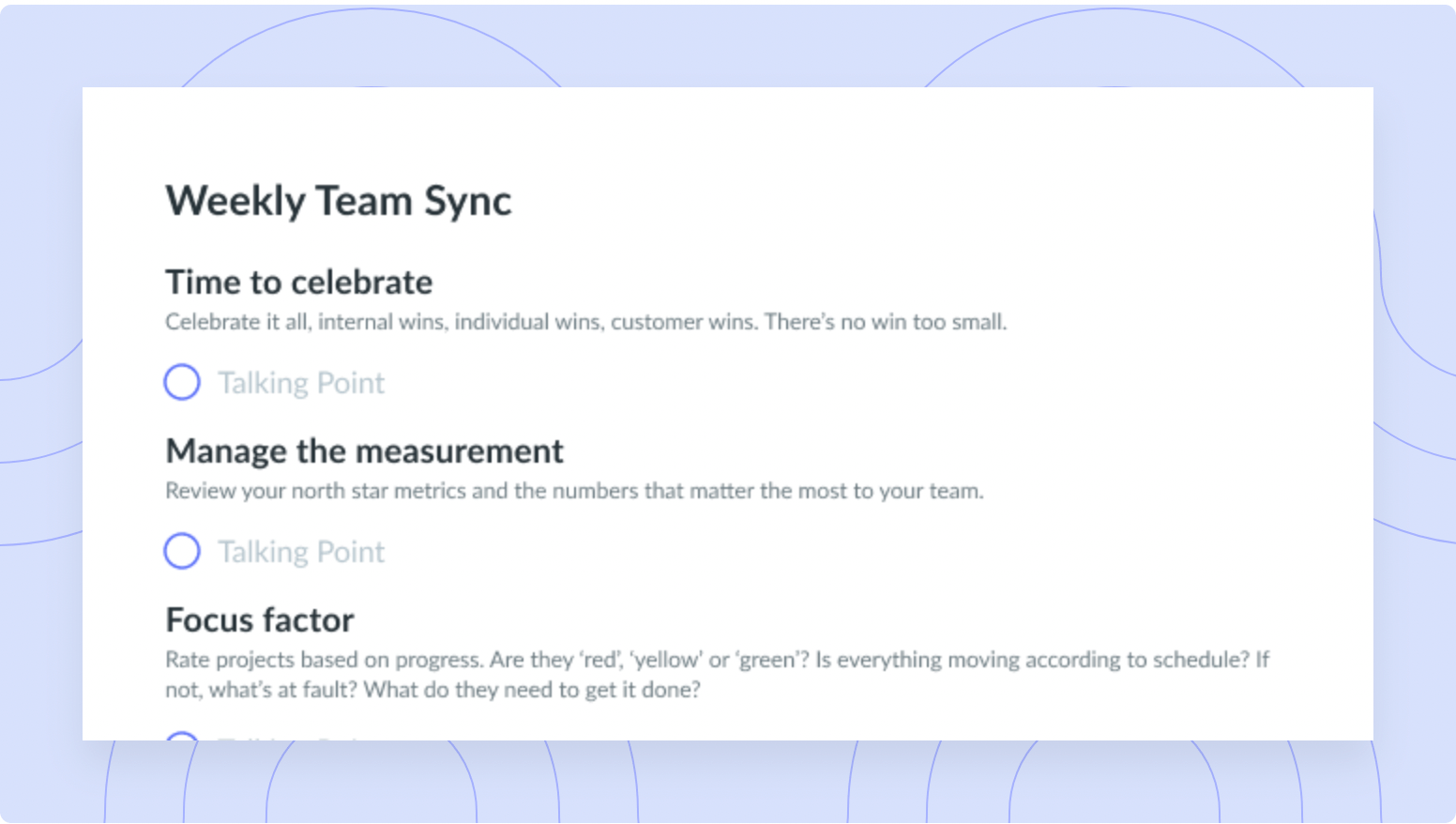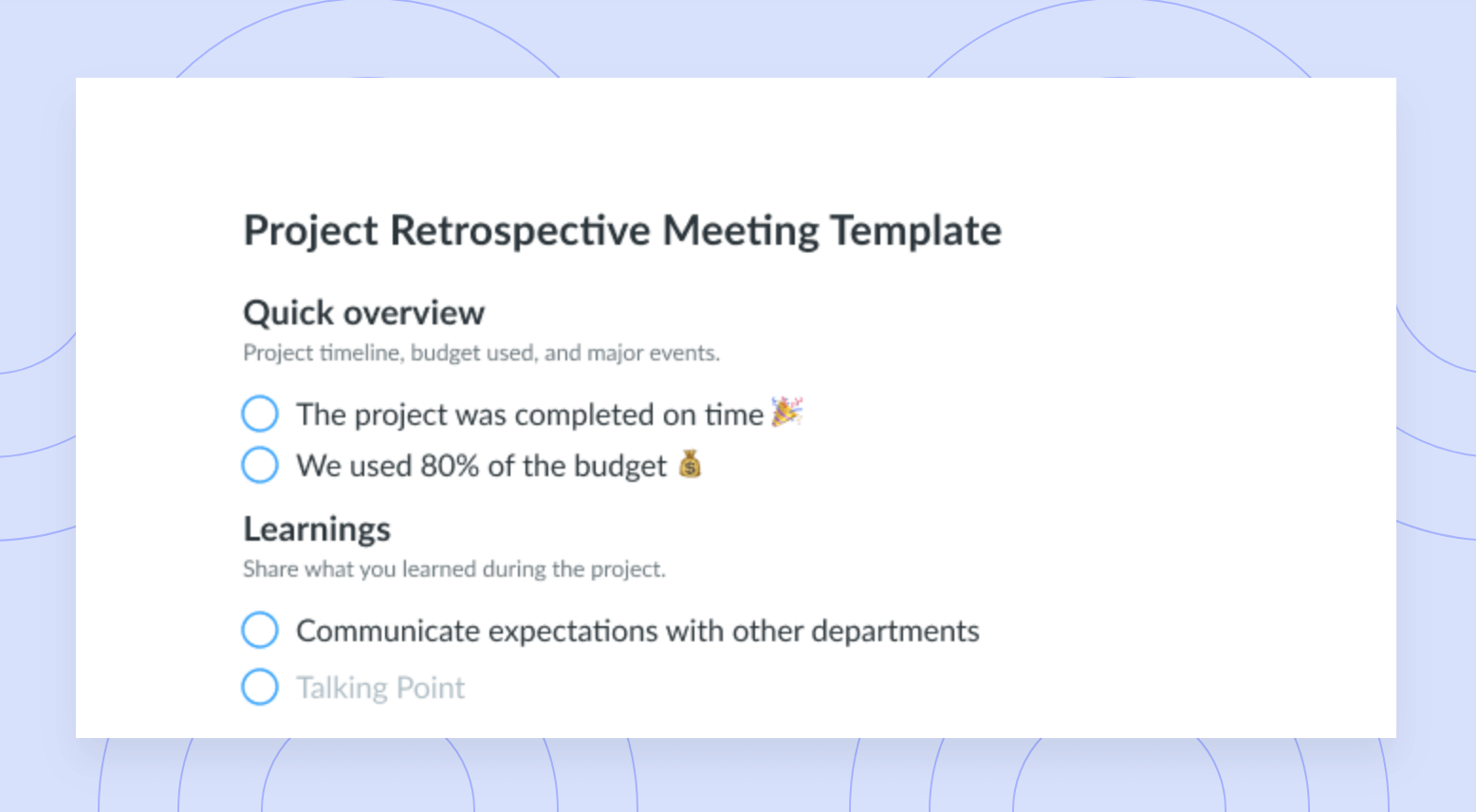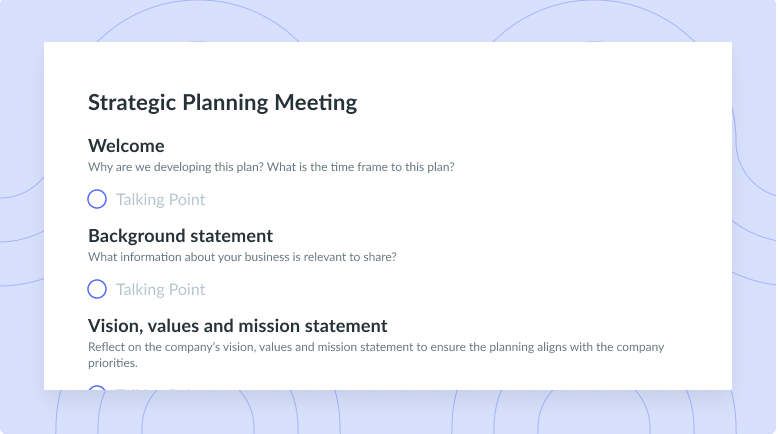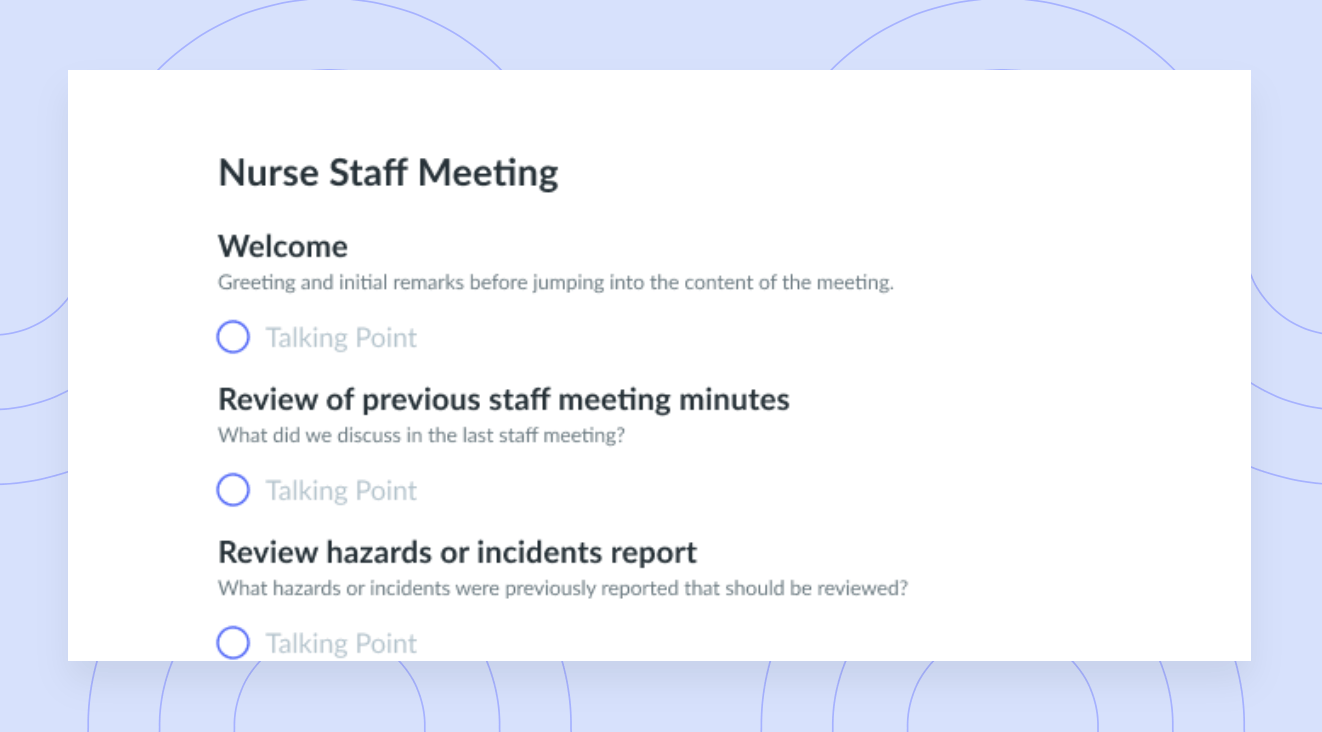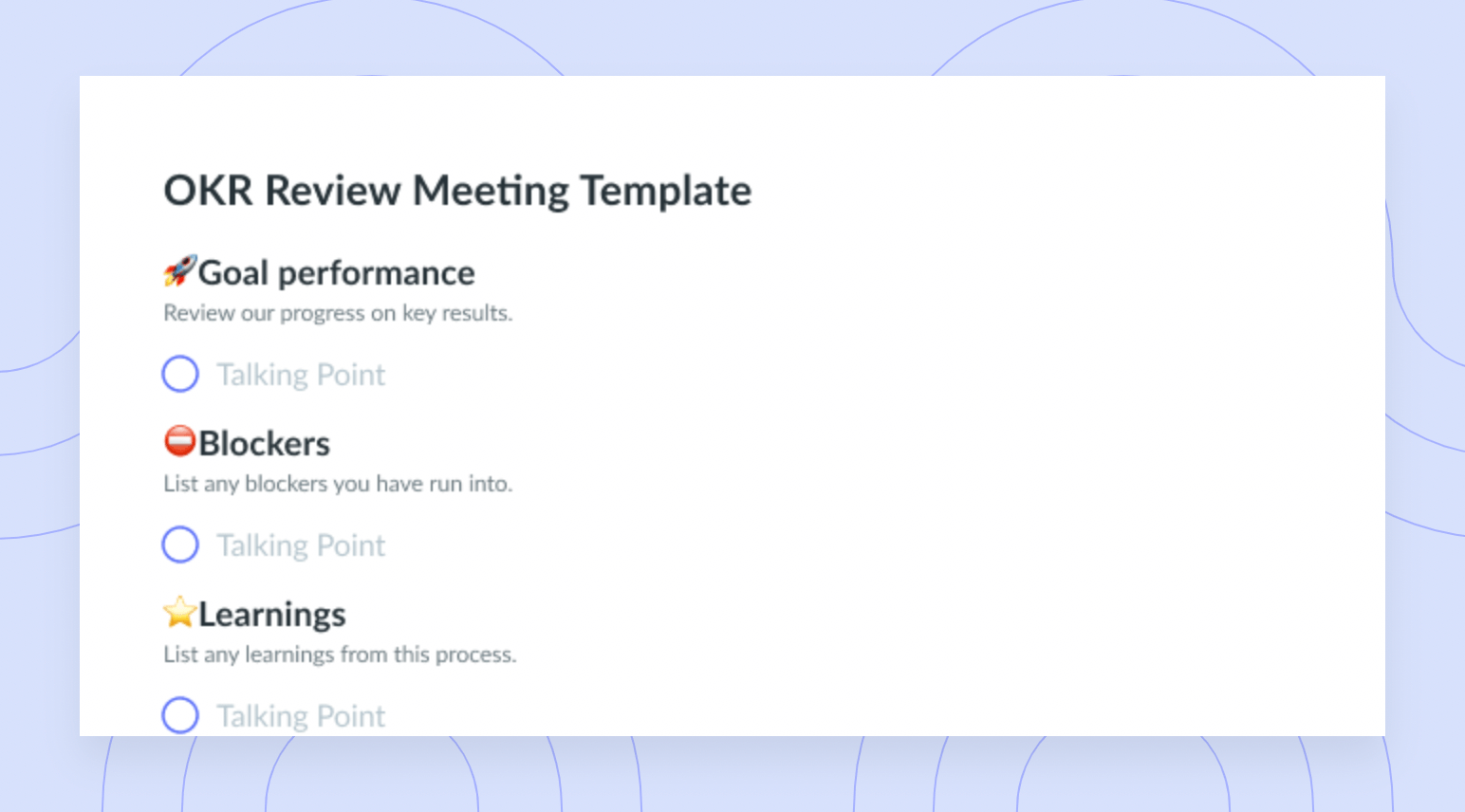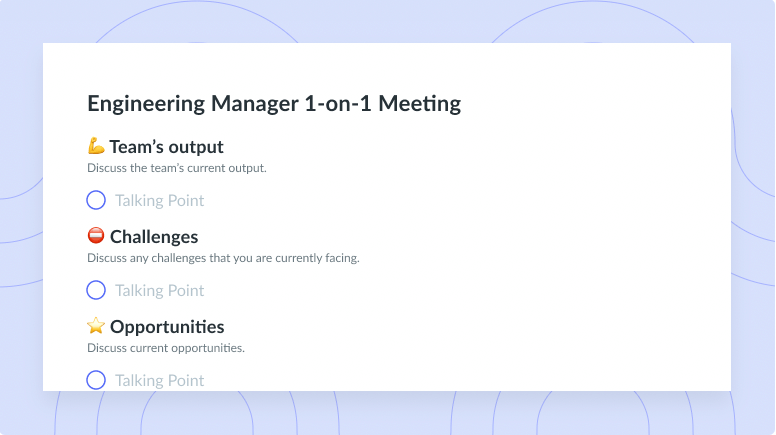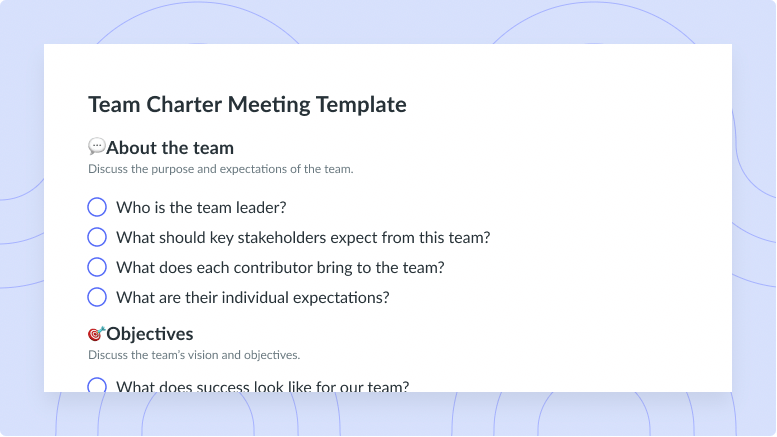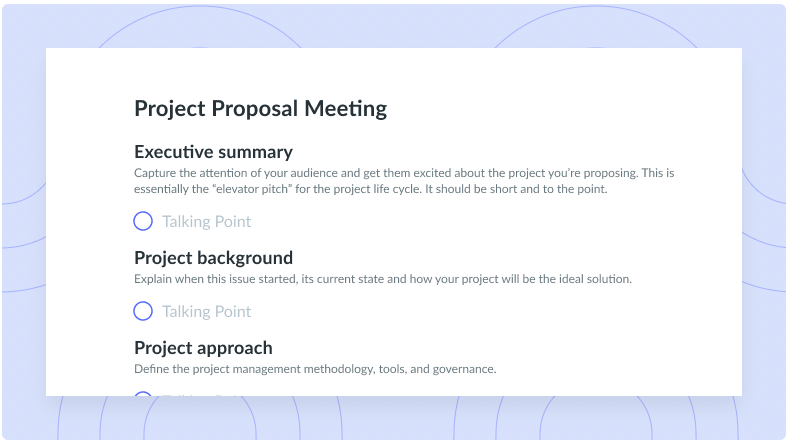45+ Project Management Key Terms to Know in 2024
A comprehensive list of must-know project management terms that will take every project from start to finish.
No matter what field of work you’re in, you’re likely to hear the same terms over and over during all kinds of conversations.
Whether you’re new to the project management life, or could simply use a refresher on some of the most common terms, we have you covered with a comprehensive list of the must-know terms that will take every project from start to finish.
What is project management?
Project management consists of the combined efforts needed to lead a team to achieve all project requirements and goals within a predetermined timeline. Project management is usually carried through by the project manager, who is in charge of deliverables, action items, information, and fellow team members from the start to the finish of a specific project.
45+ project management key terms to know
Agile Project Management: Focuses on an iterative approach to project delivery and is used to segment larger projects into smaller and more manageable tasks, allowing tasks to be completed faster.
Baseline: A clearly defined starting point of any project plan that can be used to compare the progress of the project against.
Bottleneck: Occurs in any stage of the project plan where something stalls, holds up, or is a blocker to the team, making it challenging to complete certain tasks.
Change Management: The process of how a project manager prepares, equips, and supports team members to successfully go through changes in order to have continued organizational success and hit necessary goals.
Collaboration: When two or more people come together to work efficiently to complete a take or achieve a goal.
Critical Path Method (CPM): Sometimes referred to as critical path analysis, this is the longest sequence of tasks that need to be completed to successfully finish the task. If any task within the path is delayed, the entire project will be delayed.
Dependencies: Tasks within a project that require input from other tasks or cannot be completed until previous tasks are finished.
Expectation Management: The understanding that the project manager has a clear idea or view of the project’s budget, scope, timeline, and can effectively manage the team to carry out all tasks to success.
Follow Up: The act of finding out more about a specific action or task. Coming back to something to investigate further or find out additional information.
Issue Log: A project document where all the issues, bottlenecks, or roadblocks that are negatively impacting the project are listed, recorded, or tracked. The log is a tool for reporting and communicating all instances occurring within the project.
Issue Management: The process of identifying and resolving issues or problems that occur within a project that could impact its timeline or the overall success.
Issue Tracking: A system in place that is a way for the project team to document issues, and assign who is responsible for solving each issue. It can also be used to view the status of the progress of resolution and if an individual needs assistance in solving the problem.
Kickoff Meeting: The initial or first meeting with the project manager, project stakeholders, and the team of a specific project. This provides an opportunity to get everyone in the room to discuss the timeline, goals, key metrics, and more. Try a free project kickoff meeting agenda template for a productive use of time!
Meeting Agenda: A comprehensive list of the topics, talking points, activities, and action items that will be discussed during the meeting. This outline should be sent out ahead of time so that all attendees know what to expect and can come prepared.
Meeting Minutes: The written record of decisions, talking points, and the conversation during the meeting. This record can be used to inform team members who weren’t able to attend the meeting of what was discussed, as well as used as a record of the decisions and action items should they need to be revisited.
Milestone: A specific point of progress within the project timeline that a team strives to hit. Usually, a project milestone is an important step within the development of a project that must be completed on time.
Project Budget: The total cost that is needed to complete a project over a specific timeline or period of time. Typically a project budget includes labor costs, materials, and operating costs.
Project Manager: The individual that is responsible for the day-to-day management of the project, its tasks, and whether or not it’s completed on schedule. This person will plan, monitor, execute, and control the projects from start to finish.
Project Portfolio Management: Used by project managers to narrow down the estimated return on undertaking a project. It will prioritize and analyze the value of the projects within a team’s portfolio and find the best overall goals and objectives within them.
Project Plan: The official documents that define the stages of a project from start to finish. Usually, the plan includes risk management, scope, project budget, timelines, and resources needed to complete the project.
Project Scope: The outline of a project that consists of resources, deliverables, and activities needed to be a success. Will also specify what the project is about, what’s included and what’s not, who the key stakeholders are, and any potential constraints or roadblocks.

Project Timeline: The list of tasks or activities that a project will include, in chronological order, so that the project manager and the team involved can view the details of the project in one place with full transparency.
Quality Planning: The process of determining the factors that are most important to a project, and then narrowing down how to meet each of those factors. The quality plan document will specify items like the resources, specifications, and other relevant tasks needed to the project.
Quality Assurance: Typically takes place during audits where the processes being used to produce the necessary deliverables are investigated or looked into.
Quality Control: Measures the level of quality of the products or deliverables, while then accepting or rejecting them based on the quality assurance standards previously set forth.
Quality Management Plan: The guide for project managers to follow as a way to execute how qualities will be managed through the lifecycle of a project. The plan determines the policies and procedures that will be necessary for the project to deliver success.
Requirements: The actions, processes, or conditions that a project needs to meet for it to be considered finished. Requirements can be a guideline for the project team members to follow as they move through the project timeline.
Resource Allocation: The way that resources are assigned or scheduled to be available to the project team to be most effective. A project manager will usually determine when resources are allocated and to who within the timeline.
Resource Availability: Information surrounding what resources the team can use when working on a project, when they’re available to use, and the conditions of the availability.
Resource Breakdown: A list of resources that will be required to execute a project effectively from start to finish. This outline can be broken down into functions and types, and will specify the team members who need access to which resources, and when.
Resource Calendar: A calendar used to plan, manage, and monitor resources (including employees and staff). This document provides project managers with an overview of the ways resources are being allocated and utilized, and which resources are available. The calendar can include availability, timesheets, leaves of absences, holidays, planned work, and more.
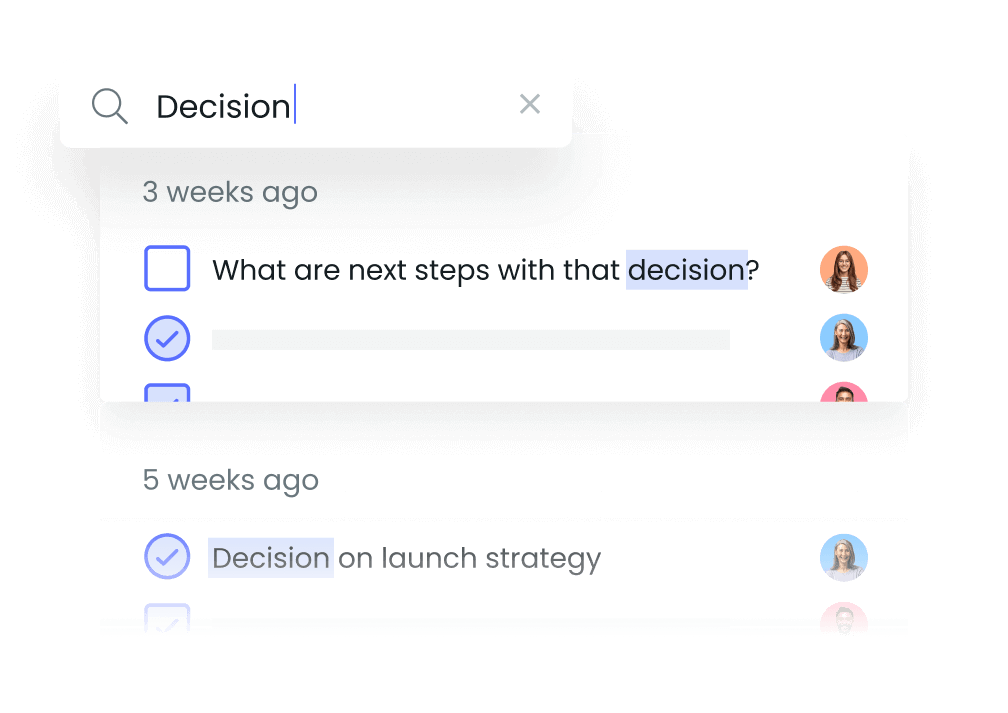
Resource Leveling: A technique used to adjust the start and end dates of a project based on the limited resources that may be available. The goal of leveling is to balance the demand for each resource with the supply available to the team.
Resource Management: The strategy used to plan, schedule, and allocate resources to maximize the efficiency of a project.
Risk Management: The process of identifying, analyzing, and knowing how to respond to any risk that may arise throughout a project lifecycle with the goal of remaining on track to see the project through to completion.
Risk Mitigation: The steps the project team takes to reduce the probability of a negative impact that a risk may have on a project.
Risk Monitoring and Control: How a team keeps track of all identified risks, how they monitor and identify new risks, and ensures that a plan is in place to reduce the likelihood of risks occurring in the future.
Risk Owner: An individual who is responsible for monitoring the risks that may occur throughout the project timeline, and who will implement an appropriate risk response strategy or plan of attack.
Scrum: A type of agile meeting that is a quick check-in with the project team. They usually take place in the morning and are roughly 15 minutes long.
Sprint: A type of meeting where the project owner, manager, scrum master, and development team meet to discuss how to complete specific tasks, milestones, or deliverables within the overall project.
Stakeholder: Any individual who has an interest in the project’s outcome. This could be project managers, customers, or fellow teammates.
Stand-up Meeting: Another way to refer to a scrum, this type of meeting is a short sync with the team to make sure everyone is aligned and are staying on task. Try our free daily stand-up meeting template.
Status Report: A standardized or formal write-up that details the project progress against the project plan as a way to keep all stakeholders informed and looped into how the project is going.
Waterfall Model: A type of project planning strategy where the stakeholders and customer requirements are collected before a project begins, followed by the creation of the project plan to accommodate and detail all requirements.
Work In Progress (WIP): A write-up of the billable labor, materials, and expenses within a project that have yet to be billed on a customer invoice. This work is already completed, partially completed, or expenses have already been acquired by the team, but the invoice is in the process of being billed.
Work In Progress Limit: The constraints that the owner or project manager has put on the project.
Work Breakdown Structure (WBS): A strategy for completing a difficult, complex, or multi-step project by dividing it into smaller, more manageable tasks that can be completed faster and more efficiently.

![How to Use the SBI Feedback Model [+ Examples]](https://fellow.app/wp-content/uploads/2023/12/SBI-feedback-model-2.jpg)







